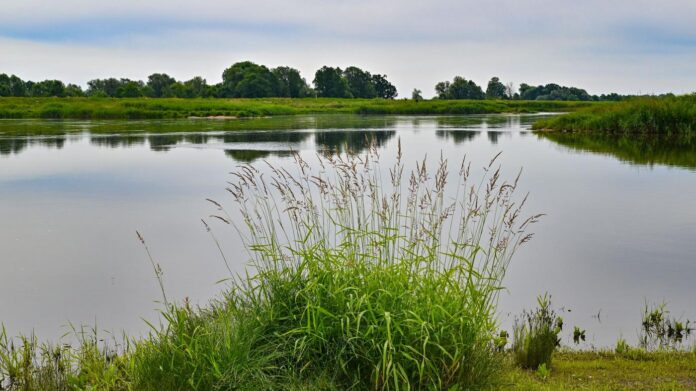
In the future, the federal government is relying on stronger cross-border cooperation on the Oder when it comes to water. “In northeast Brandenburg, it’s about dealing with water shortages, in the Oderbruch it’s about flood protection, in the Ueckermünde Heath it’s about strengthening entire village communities through renaturation. One region, three problems,” explained a spokeswoman for the Federal Ministry of Construction. In order to solve the problems, cooperation “between planning and water management and also between the players on both sides of the Oder” is essential.
Cross-border action makes sense, especially in these areas, because water knows no borders and always finds its way, explained Federal Construction Minister Klara Geywitz. This applies to various areas: Flood protection only makes sense if all residents act together and in a coordinated manner. Anyone who builds a dyke should talk to their neighbor on the other side of the river, said the SPD politician according to the speech manuscript. This also applies to water shortages, dryness and drought. “Anyone who drills a well should also talk to their neighbor.”
Water projects should bring knowledge to all
The Federal Ministry of Construction says it is funding water projects along the Oder. One of the requirements is that “findings are made available to everyone, both near and far from the Oder.” One of the projects aims to improve the landscape water balance in the German-Polish border region. One of the goals is to use synergies between water retention and flood protection. Almost 200,000 euros in funding is to be made available for the project.
Another funded project is dedicated to preventive flood protection. This will produce risk analyses that will incorporate urban development planning and inform residents. The third model project will focus on restoring the water balance in the Ueckermünde Heath landscape. In the town of Rothenklempenow in Mecklenburg-Western Pomerania, the landscape water balance is to be stabilized. “The region suffers from dry periods, which has a negative impact on agriculture and the population,” explained the ministry spokeswoman. A water management system will also involve Polish border communities.
© dpa-infocom, dpa:240902-930-221041/1
This is a message directly from the dpa news channel.
